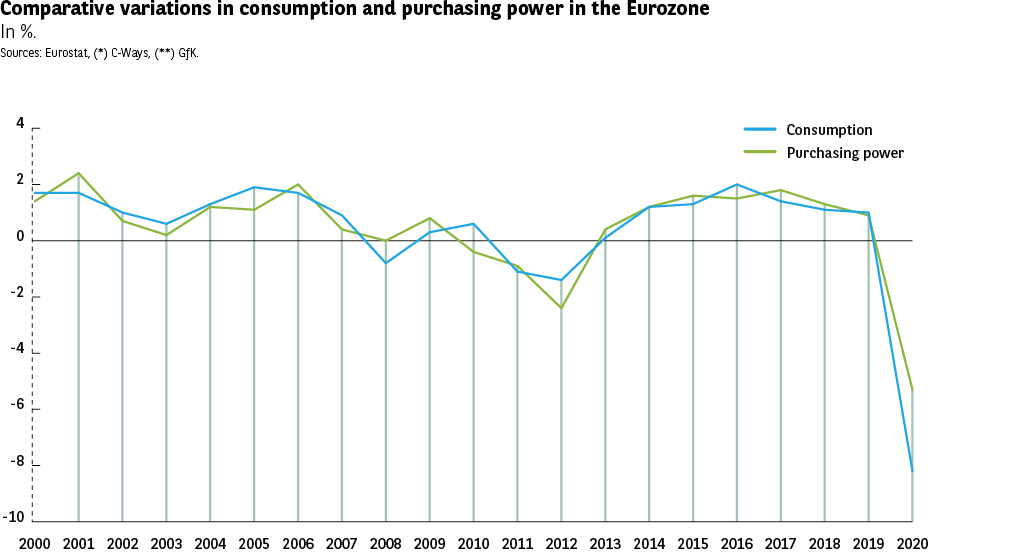The stability of consumer purchasing power is deceptive
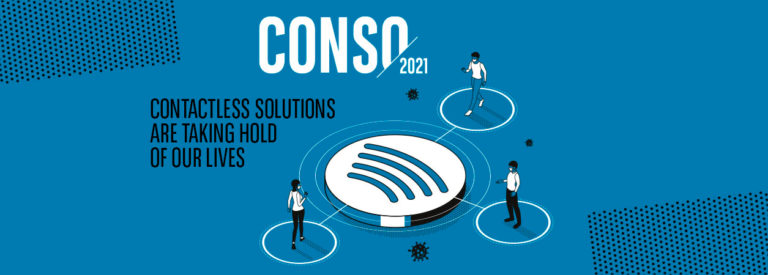

Purchasing power may be stable, but…
With time feeling as though it has been paused and the economy and social life in general experiencing something of a hiatus, the perception by Europeans that their purchasing power has remained stable is almost identical to last year (Fig. 8 Barometer). Almost 1 in 2 Europeans are of this view (+2 pts). Government support and a drop in consumption go a long way to explaining this result. And yet, it would be reductive to focus solely on this piece of data. 37% of Europeans believe that their purchasing power has fallen, 5 points more than the 2020 figure.
Fig. 08 Barometer:
Download this infographic for your presentations
In all countries, the common feeling is that purchasing power has deteriorated (Fig. 9 Barometer), in some cases to a considerable degree, such as in Romania (-16 pts), Poland (-15 pts), Portugal and Slovakia (-13 pts). One country stands alone: France. Often criticized for claiming that they can afford to consume less and less, despite figures that prove the opposite, for once the French are swimming against that particular tide. France’s part-time working measures, which are among the most generous in Europe, have undoubtedly contributed to this positive attitude.
Fig. 09 Barometer:
Download this infographic for your presentations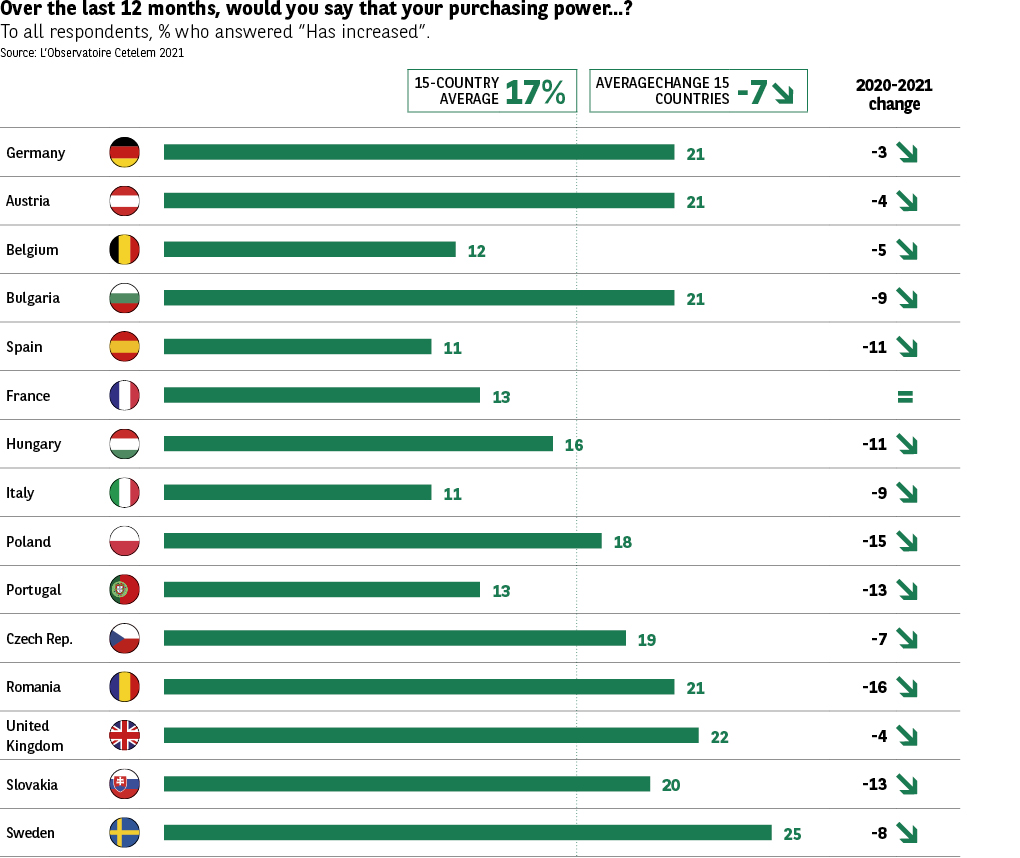
It is no surprise to see economic growth fall in all the countries covered by L’Observatoire Cetelem de la Consommation (Fig. 10 Barometer), with many posting results not seen since the Second World War, and even further back in history in some cases. This decline tends to be more pronounced in the countries most severely affected by Covid-19. The dramatic nature of these figures offers a stark indication of the impact the crisis has had on consumption.
Fig. 10 Barometer:
Download this infographic for your presentations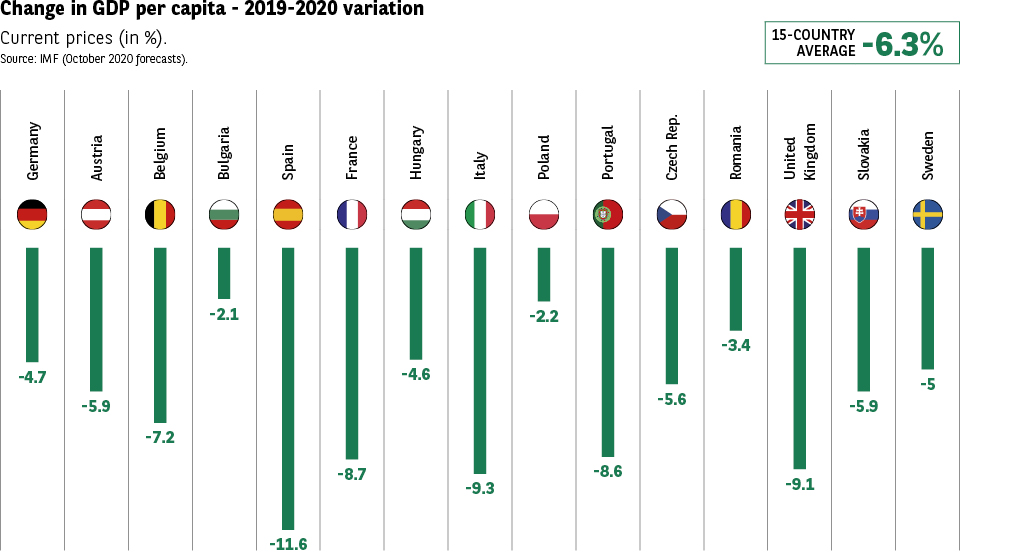
Price rises are less of a concern
7 out of 10 Europeans believe that prices have increased (Fig. 11 Barometer). However, the figure has dropped significantly (-8 pts) compared with the previous year and scores have fallen more sharply still in some countries, including Sweden, the United Kingdom and Germany (-20 pts, -14 pts, -13 pts). Only the Belgians are more likely to believe that prices have risen than in 2019 (+4 pts).
Fig. 11 Barometer:
Download this infographic for your presentations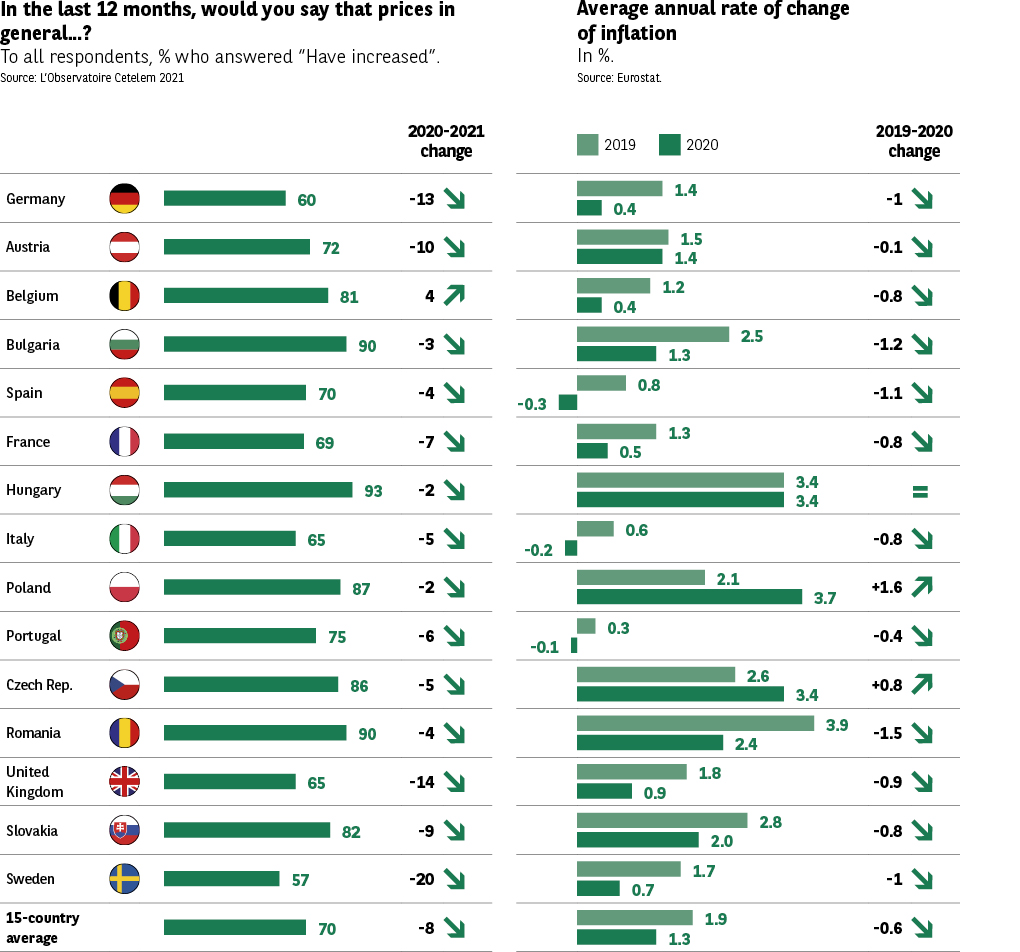
It is even more interesting to note that the impression that prices have increased has lost ground consistently in almost all countries over the last three years (Fig. 12 Barometer). In 2019, 8 out of 10 Europeans were of this belief. An examination of actual inflation figures backs up the feelings of Europeans. In most of the countries included in the Observatoire Cetelem Barometer, inflation fell between 2019 and 2020, with negative inflation posted by the three Southern nations: Italy, Spain and Portugal.
Fig. 12 Barometer:
Download this infographic for your presentations